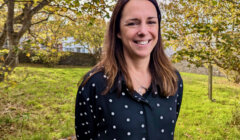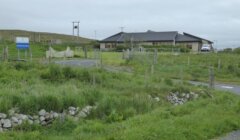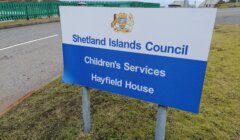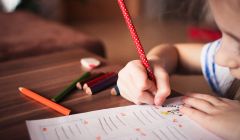Education / Councillors seek reassurance over remote learning
The education and families committee also hears that staff in children’s services have already begun receiving Covid vaccinations
COUNCILLORS have received assurances over how Shetland’s children are being taught remotely under the current coronavirus restrictions – with partnership working seen as a key component.
At a meeting of Shetland Islands Council’s education and families committee on Tuesday morning, elected members raised a number of questions and concerns on how the isles’ bairns have been taught since national restrictions were imposed for the start of term.
The majority of Shetland pupils are receiving remote learning at home, with only children of key workers and vulnerable bairns being taught in person in school or receiving early learning childcare.
Quality improvement officer Robin Calder said that 23 per cent of the school roll is eligible to receive in-school support, while 844 children in total are able to access physical learning.
“But it’s important to stress that numbers vary on a daily basis,” he said, due to key workers’ shift patterns, for example.
Calder said the council remains “very, very grateful to all our school and early learning staff” for their work.
Early learning, primary one to three and senior pupils needing to work on practical subjects, however, will return to school from 23 February in a national phased return.
This will be eagerly anticipated for children and parents alike, with some households in the isles struggling to juggle work, childcare and remote learning.
“There’s a range of support in place for children and young people and our staff and there’s very clear points of communication with parents and carers and well,” Calder added.
But the quality improvement officer said: “I think we have to be really upfront and honest that remote learning has its challenges”.
He said parents and carers should not feel pressure to replicate the school day, with “short, sharp manageable chunks of remote learning” the recommended way forward.
Become a member of Shetland News
Other problems which were raised include connectivity, although paper learning packs are available.
Calder said nearly 500 mobile devices have been given out to families through Scottish Government funding in a bid to assist the digital divide.
However, west councillor Catherine Hughson said connectivity was still a key issue.
Lerwick councillor Amanda Hawick raised the issue of live learning, where pupils at home can receive streamed lessons or check-ins with teachers.
She said there has been “huge concern” among parents about how this is being used locally, though, with worries about the time dedicated to live teaching and also how it is not available across the board.
Calder said there continues to be an upturn in the use of live interaction during remote learning in Shetland.
But it remains optional for teachers, and pupils – with some families chasing not to be involved.
“We are seeing an increase in the number of live learning, live teaching, [and] experiences,” Calder, however, said.
Children’s services director Helen Budge raised the issue of how a family of three bairns, for instance, could receive live lessons if it ended up being mandatory for all.
“It’s a balancing act with how we work with parents, how we work with schools,” she said.
Hawick also highlighted the “bizarre system” in place where devices have been given to families to help the digital divide – yet the connectivity isn’t in place to access content.
Calder said staff were trying to be flexible in supporting parents and carers struggling with the internet, with some of Shetland’s more remote schools for example offering paper learning packs for collection in school grounds.
He also highlighted that schools are working on a strategy involving reconnection, recovery and nurturing to support pupils when they do return to school.
Calder said there was a weekly average pupil attendance rate of around 95 per cent between when schools reopened in August and December last year, which is above the national average.
Shetland South member Robbie Mainland also sought assurance that the mental wellbeing of staff was being looked after.
“Staff have been remarkably resilient through this period of remote learning,” Calder said.
He added that the ever-changing restrictions have “really turned education upside down”, recognising that some staff have expressed anxiety and concern, and that support is in place.
Following a question from Shetland Central member Davie Sandison over vaccinations for education staff, the meeting heard that a total of 119 employees in the service have already been put forward for jabs.
Some were vaccinated last week, and more are due to get their first dose this week.
Quality improvement officer Lesley Simpson said a key focus of this was to protect vulnerable children.
Budge said staff receiving a vaccine was not mandatory, but it was “encouraged”.
Committee chairman councillor George Smith said he hoped elected members had been reassured after hearing about the ongoing work of children’s services staff.
He said he “fervently hoped” that once children start returning to school later this month that there will not be another eventual turn back to remote learning.
Smith added that the direction of national school restrictions – imposed across the country despite the isles being in level three – has been set by the Scottish Government.
“The ability to have some local discretion has been limited,” he conceded, but he said when there has been room for manoeuvre the council has sought to fine tune how things are run.
Become a member of Shetland News
Shetland News is asking its readers to consider paying for membership to get additional perks:
- Removal of third-party ads;
- Bookmark posts to read later;
- Exclusive curated weekly newsletter;
- Hide membership messages;
- Comments open for discussion.
If you appreciate what we do and feel strongly about impartial local journalism, then please become a member of Shetland News by either making a single payment, or setting up a monthly, quarterly or yearly subscription.














































































